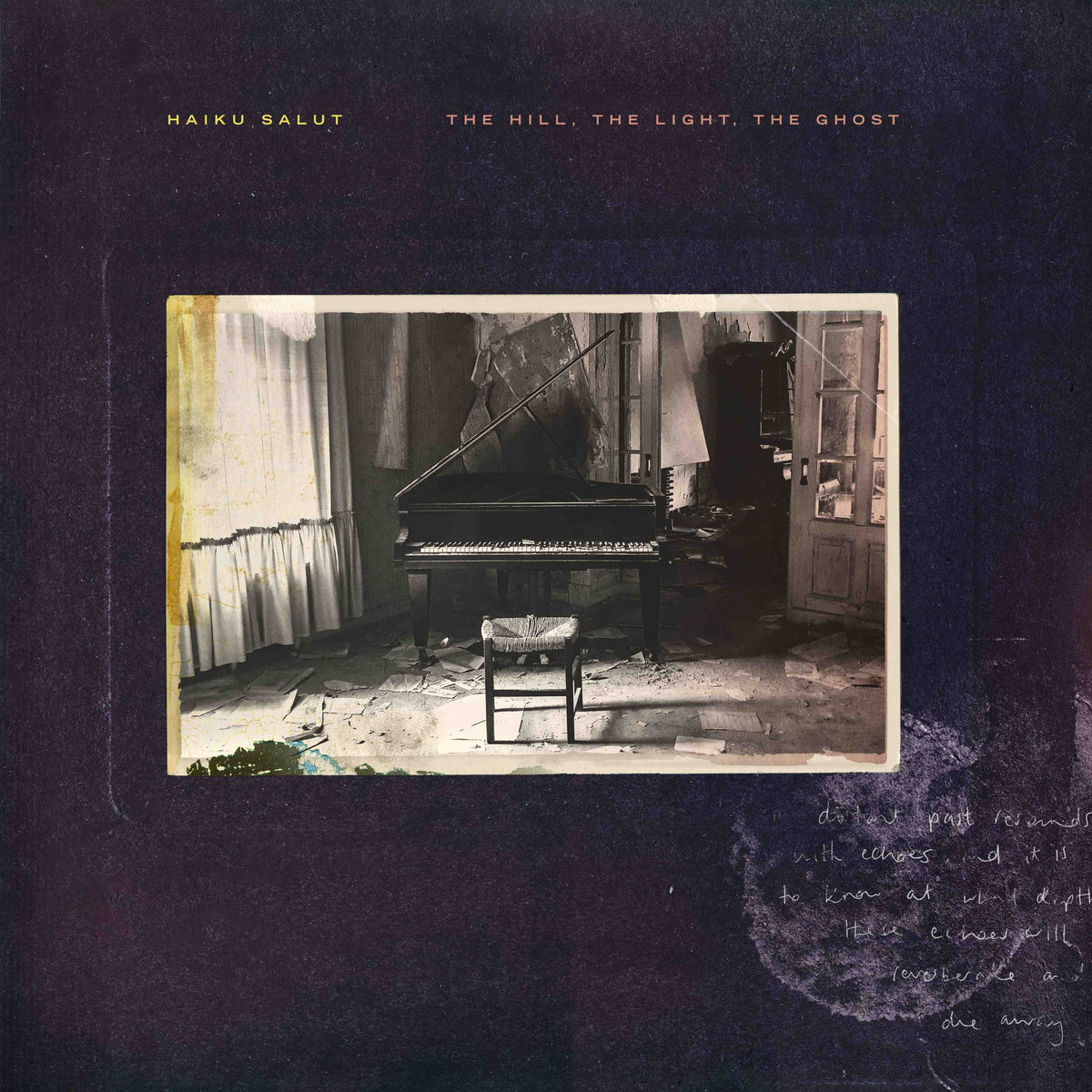I spent the first years of my life growing up in a deprived village in the Republic of Ireland. The country was years off the economic boom (before the financial crash of 2007), but where I lived wouldn’t ever see any effects of any such prosperous years. My hometown had nothing going on; the most exciting way to spend your day was getting a bus away from the place, and near enough every evening would be spent mumbling away the tuppence of a salary in the pub. Most of the area was farmland, but less than half of it was used for such purposes, the rest left to overgrow around derelict, abandoned farmhouses that would startle a modern day health and safety officer into an early grave.
Tasked with the job of babysitting me, my older brothers would take me with them as they loitered around the village, doing whatever they could to fill the days. Sometimes they went out to the old farmhouse across the road from us. The thick, overgrown, weedy grass felt like a dreary jungle to my short stature. The few pieces of furniture inside were grimy, past the point of repair or any kind of care. No one in the village lived well, but never were they despondent enough to take what was left here: cabinets with broken doors; a sofa with rusty springs showing from the chewed away seats; and cracked and chipped dinner plates left out for a meal no one would ever cook.
As I got older, my brothers would explain that no one took anything because it would upset the ghost who lived there. I was young and susceptible as the country I lived in was Catholic, so each subsequent time I went to that farmhouse I swear I heard a door deliberately creak on its own or the cold touch of a spectre on my back. When you’re young and have no reason to think or believe otherwise, ghosts are as real as the high levels of alcoholism in my county.
Now that I’m older, I understand that ghosts are indeed very real – but not in the spooky, Halloween-esque way I pictured them as a kid. Instead they are as Haiku Salut describe them when they talk about the creation of their new album,The Hill, The Light, The Ghost. The aural scaffolding of the Derbyshire trio’s fifth album came from field recordings of desolate, derelict places (a disused military bunker in Berlin, abandoned houses), and from them they built new sound-worlds. They sought to give new contexts to the ghosts that would otherwise have been forgotten. The results are quietly chilling, eerily sentimental, and humbly enchanting.
With their previous releases, the devil is in the details, and The Hill is no different. Swirls of chattering electronics, skittering drum tracks, and regal piano notes come together to make new landscapes. “All Watched Over By Machines Of Loving Grace” builds from a cautiously jazzy guitar riff to a swell of bright noise, like a flood of memories of a seaside penny arcade. From spidery chimes “We Need These Beams” ushers forward a mournful aura of low synth hums, like the trio are showing you a cavernous catacomb. The engrossing features of Haiku Salut’s music is in the conjuring of tiny elements, all sewn together in front of you to create tapestries with a distinct sense of place.
That exact place isn’t always clear though; the context of the found sounds and field recordings is sometimes lost (though the album’s accompanying videos certainly help). You might hear the rustle of footsteps, the noise of children playing, or the sweet sound of birdsong, but knowing any kind of exact location is superfluous to the enjoyment of the music itself. This is Haiku Salut’s most cohesive effort to date, a fully realised document of different sound worlds all strung together with a ghostly undercurrent and feelings of rediscovered old photographs that were thought to be lost.
The Hill comes alive and is best enjoyed when under close inspection. With each subsequent release, the band have placed greater value in texture as a driving force for eliciting emotional reactions, and this album continues that trend. The tonal quality of every noise feels considered and important: the knocking percussion on “Entering” that sounds like shutters flapping in the wind; the typewriter clack of noises on the Hauschka-esque “I Dreamed I Was Awake For A Very Long Time”; and even the resplendent strings on the sleepy-eyed opening track “Wide Awake”. Where noise and layers could easily have taken the driving seat, the trio opt to paint with smaller brushstrokes.
And sometimes a noise is all you need to capture your attention. “I Dreamed I Was Awake For A Very Long Time” is particularly full of features to come back to, from the piano ripple which seems right out of the Wii Sports incidental music catalogue, to the solitary, cold, metallic trumpet note recorded in the aforementioned discarded military bunker. The album hits its stride early, and the back half leaves a lot more for the listener to imagine. The warm promise of “Trespass” marries a solitary piano piece underneath classic múm-esque electronics, while “How The Day Starts” is like tape reels unspooling with an earthy bellow, stretching out like an extended interlude between each side of the album.
I brought up all that stuff about where I grew up and the abandoned farmhouse at the beginning because when listening to, thinking about, and reading about the creation of The Hill, The Light, The Ghost, it brought all these memories back. I thought of ghosts from my past and how when a place is left unoccupied, the memories are just waiting for new context to arrive. A building surveyor deciding how to tear an old house down, some bored kids passing through and conjuring up ghost stories, or even a musician deconstructing the sound of a space and making it into something new entirely.

